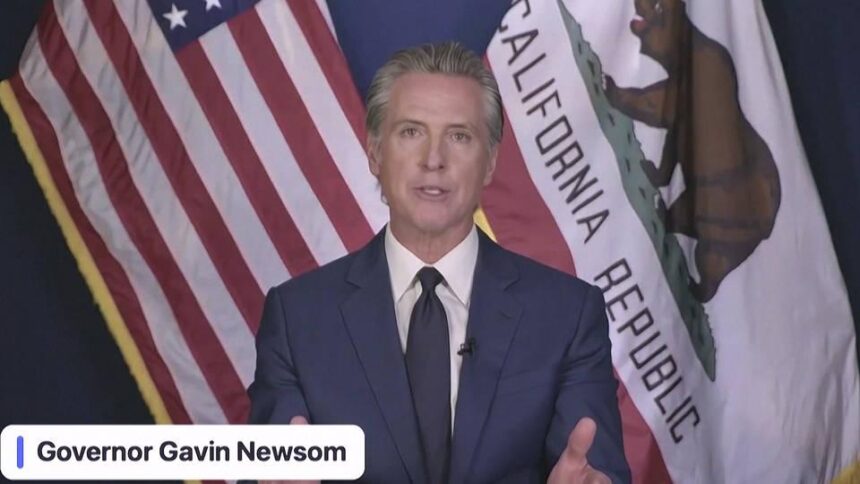california Governor Gavin Newsom Proposes Rollback of Health Coverage for Undocumented Immigrants
In a significant shift in health policy, California Governor Gavin Newsom has unveiled a proposal that would roll back state-sponsored health coverage for undocumented immigrants. This move, which affects thousands of low-income individuals who rely on Medi-Cal for essential services, has sparked heated debates among lawmakers, advocates, and constituents. As concerns mount over the implications for public health and social equity, proponents of the measure argue it reflects the state’s ongoing budgetary challenges, while opponents contend it undermines California’s commitment to inclusivity and access to care. This article explores the details of the proposal, the reactions it has elicited, and the potential consequences for health care in the nation’s most populous state.
Impact of Proposed Health Coverage Changes on California’s Undocumented Community
The proposed rollback of health coverage for undocumented immigrants in California, spearheaded by Governor newsom, poses significant risks to one of the state’s most vulnerable populations. As California has long been considered a refuge for many undocumented individuals, the potential discontinuation of health services could lead to dire consequences, including increased reliance on emergency care, heightened health disparities, and a surge in preventable diseases. Experts highlight the need for continuous access to preventive care, especially for chronic conditions such as diabetes and hypertension, which can escalate into more serious health issues without consistent medical oversight.
Community advocates warn that the changes could pave the way for broader health inequities, as many undocumented immigrants already face barriers to accessing basic services. The proposed measures may result in a significant financial burden for the healthcare system, as emergency departments would likely experience higher patient volumes from those lacking regular access to care. To understand the potential impact, consider the following points:
- Increased Emergency Visits: A rise in avoidable hospital visits could lead to overcrowded facilities.
- Public Health Risks: Evolving health crises, such as outbreaks of infectious diseases, could emerge without preventive care efforts.
- Financial Strain: Emergency treatments are typically more expensive than regular care, putting additional strain on the state’s healthcare budget.
In response to these potential effects, stakeholders are actively discussing option solutions to preserve health coverage for undocumented immigrants. below is a summary of the current health coverage options available for this community:
| Coverage Type | Eligibility Requirements | Services Provided |
|---|---|---|
| Full-Scope Medi-Cal | Undocumented individuals under 26 or over 50 | Complete health services, including hospitalization |
| Limited-Scope Medi-Cal | Emergency services for all income levels | Emergency and urgent care services |
| community Clinics | No documentation required, income-based | Basic health services and preventive care |
Analysis of Public Health Consequences and Economic implications
The proposed rollback of health coverage for undocumented immigrants in California raises significant public health concerns, notably in the context of communicable diseases and public welfare. Limiting access to healthcare for a vulnerable population could exacerbate existing health disparities and strain emergency services. Key issues include:
- Increased emergency room visits: Without preventive care, patients may resort to emergency services, leading to overcrowded facilities.
- Spread of infectious diseases: Lack of vaccination and treatment could heighten the risk of outbreaks of diseases like measles, tuberculosis, and COVID-19.
- Impact on overall community health: A sicker population can result in higher healthcare costs and lower productivity.
From an economic standpoint, the rollback could have profound implications. By cutting health coverage, the state may aim to reduce fiscal expenditures; though, this short-sighted approach could lead to escalating long-term costs. Considerations include:
- Increased state-funded healthcare costs: Higher emergency care expenditures may counteract any savings from the proposed cuts.
- Workforce productivity losses: Healthier individuals contribute more effectively to the economy, and untreated health issues can lead to absenteeism.
- Potential for rising insurance premiums: A higher uninsured rate could influence overall market dynamics, driving up costs for everyone.
| Economic Impact | Short-term Effect | Long-term Effect |
|---|---|---|
| Emergency Care Costs | Possible reduction | Significant increase |
| productivity | Minimal impact | Drop in output |
| Insurance Premiums | Stable | Potential rise |
Recommendations for inclusivity in State Health Policies
The recent proposal by Governor Newsom to reduce health coverage for undocumented immigrants has sparked a vital conversation around health policy inclusivity. It is indeed essential that state health policies prioritize the needs of all residents, regardless of immigration status. To foster a more inclusive healthcare system, policymakers should consider implementing the following strategies:
- Expanding Access: Ensure that all individuals, including undocumented immigrants, have access to comprehensive health coverage that addresses preventive care, mental health services, and chronic disease management.
- Community Involvement: Engage with local communities and advocacy groups to understand the unique health needs of diverse populations. This could lead to better-targeted health initiatives.
- Culturally competent care: Mandate training for healthcare providers in cultural competence to improve interaction and care delivery to marginalized groups.
- Funding and Resources: allocate additional state funding to programs that support health equity and integration of services for undocumented communities.
Tabled below are examples of successful health policy initiatives from various states that have set a benchmark for inclusivity:
| State | Initiative | Impact |
|---|---|---|
| California | Access to Medi-Cal for All Children | Increased healthcare access for over 200,000 children, leading to improved health outcomes. |
| Illinois | Health Insurance for Undocumented Women | Significant drop in late-stage cancer diagnoses among enrolled women. |
| New York | Community Health Centers Expansion | Improved care for uninsured communities,including undocumenTED immigrants. |
By adopting these inclusive practices, California can ensure that health policies reflect the diverse needs of its population, ultimately leading to a healthier, more equitable society.
Closing Remarks
Governor Gavin Newsom’s proposal to roll back health coverage for undocumented immigrants marks a significant shift in California’s health policy landscape. This initiative,which comes amid ongoing discussions about budgetary constraints and the sustainability of state programs,has sparked a heated debate among lawmakers,advocates,and community leaders. Supporters argue that prioritizing resources for legal residents is essential in a time of financial uncertainty, while opponents warn that such a move could undermine public health and further marginalize vulnerable populations. As the conversation unfolds, the potential impacts on countless lives across the state remain to be seen. stakeholders are urged to engage in dialog as California navigates the complexities of health care access and equity in a diverse society.








